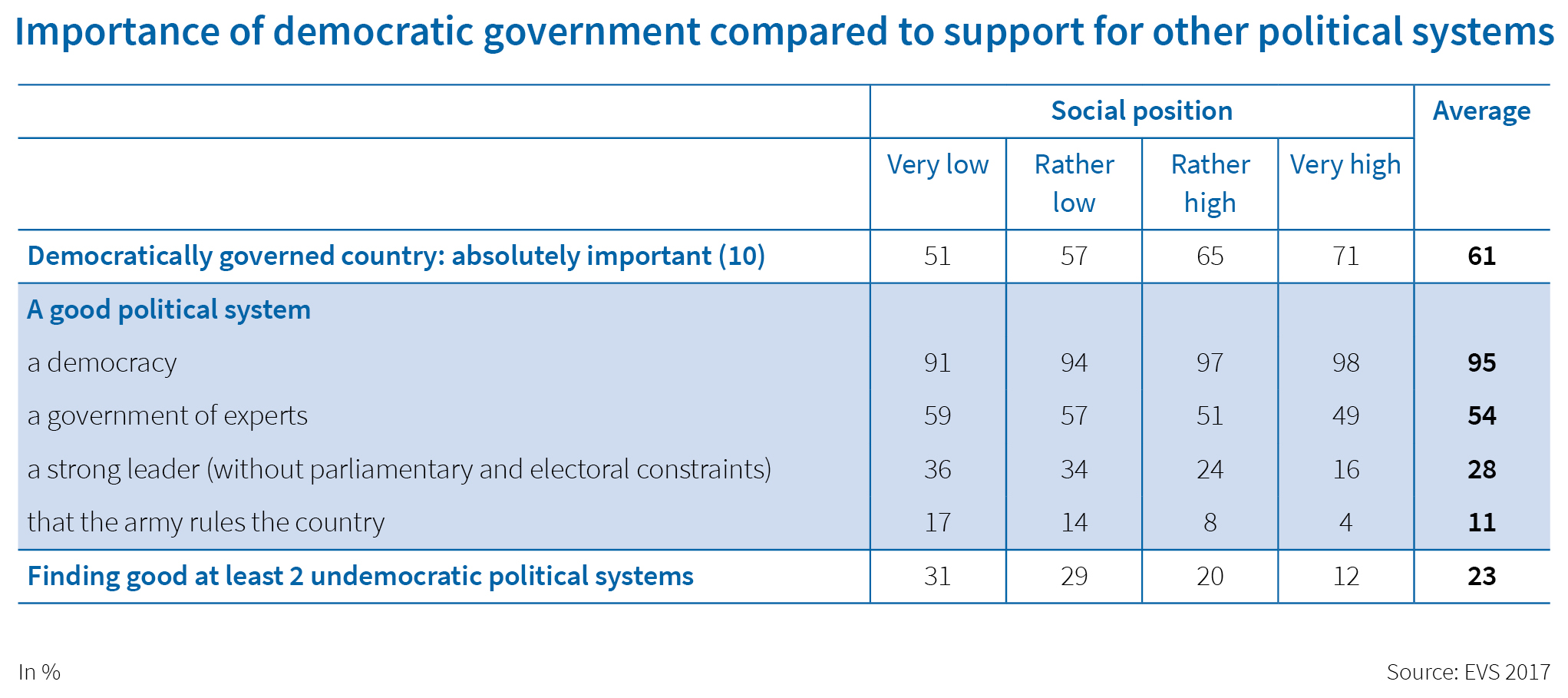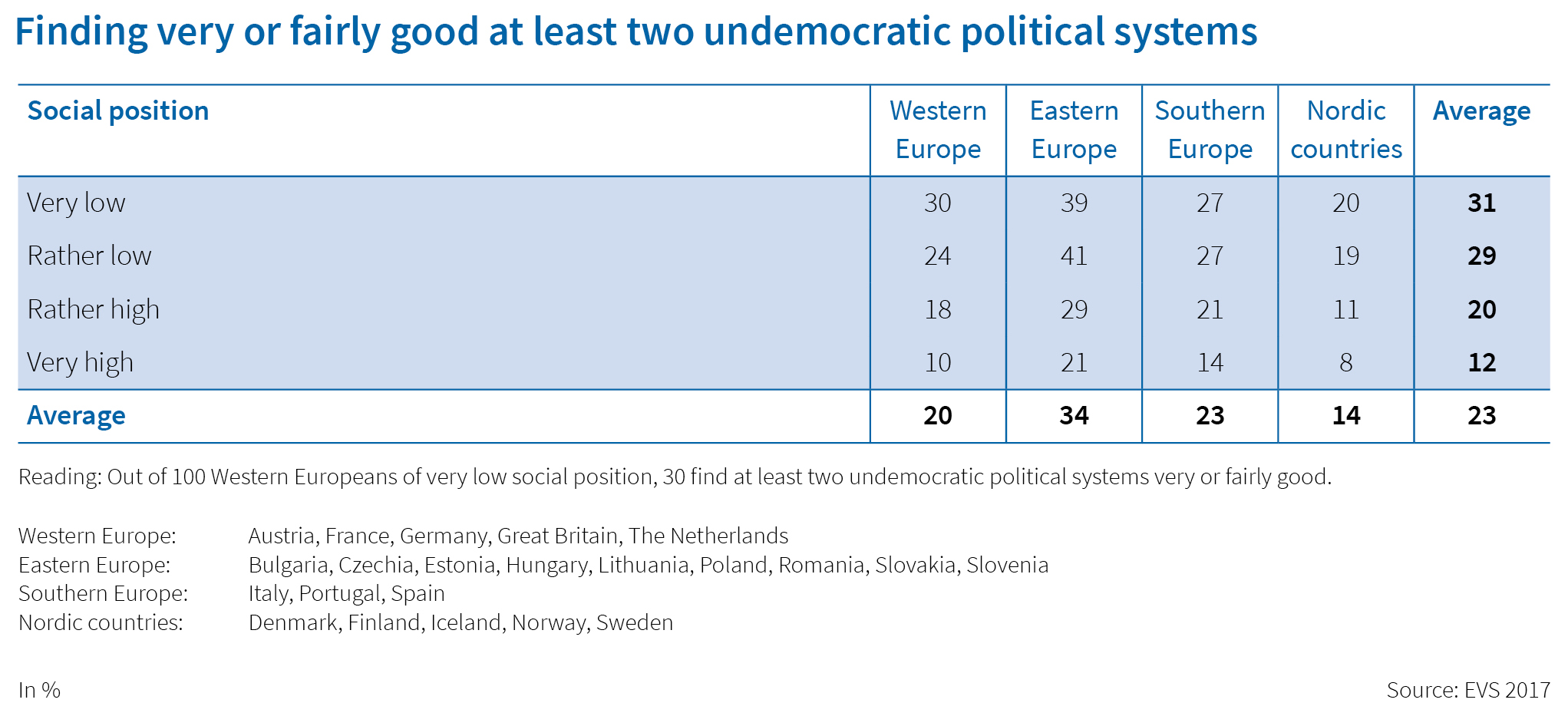Werte - Zoom, Number 15
The Invisibles: A Very Relative Attachment to Democratic Values
04.05.2022
Usually the social class of the poor and often marginalized has not yet been in the focus of surveys so that this group can be seen as "invisibles" to research in a certain way. Nevertheless, questions like these arise: Are there differences in value patterns of this group compared to other social classes? Do they have a specific value system? And if so, is this system structured enough to be efficient in all European countries? The European Values Study allows to take a closer look at several value patterns of the precarious, for example concerning the attachment to democratic values.
The social position of individuals was measured by the International Socio-Economic Index (ISEI), a synthetic linear index constructed from the occupations held, the level of income and the level of education modulated by age.1 The scale, recoded in quartiles, can be cross-tabulated with all the value dimensions used in the European Values Study. The following text focuses on democratic values.
Precarious people less attached to democracy than other social classes
At first glance, democratic values seem to be well established, since 61% of Europeans choose the highest score on a scale of 1 to 10 to indicate the extreme importance they attach to this political system. However, the precarious are clearly less attached to it than the more privileged.
When several political systems are taken into account, it is surprising to discover that, for many Europeans, finding democracy good does not prevent them from also being attracted to other types of political systems, a government of experts who make decisions, an authoritarian leader, a military government. In total, only 40% of Europeans appear as "exclusive democrats", 37% admit to at least one non-democratic system and 23% find at least two of them good. Once again, we observe that the precarious are clearly less attached to democracy than the more privileged categories.
A democratic deficit of the disadvantaged in all European countries
When we consider these differences in values according to the country of residence, it becomes clear that the lesser democratic attachment of the precarious to democracy is found in all parts of Europe, whether in the old democratic countries or in those that live largely in an illiberal context.2
Regardless of the national context, disadvantaged people seem to be significantly less democratic than others. Their lower level of education could be the reason3, as international surveys have long shown that the more educated people are, the more they tend to value democracy. Education develops a taste for expressing one's ideas, which is favored by democratic systems and often repressed in authoritarian regimes. It can also be argued that to like democracy, one must not only be sufficiently educated, but also have a sufficient standard of living and security to be able to value post-materialist values and quality of life more.4
Pierre Bréchon
Note: This text is an abridged version of a contribution to the volume "Values - Politics - Religion", which will be published by Springer in fall 2022.
Pierre Bréchon is professor emeritus of political science at Sciences po Grenoble (France), which he directed from 2002 to 2005, researcher at the PACTE laboratory (joint research unit: IEPG/CNRS/UGA), EVS program director for France and member of the Theory group of the European Values Study (EVS). He works on the sociology of values and opinion, on electoral behaviour, political and religious attitudes in France and Europe, and on the methodology of quantitative and qualitative surveys.
Contact: pierre.brechon@iepg.fr
Annotations:


